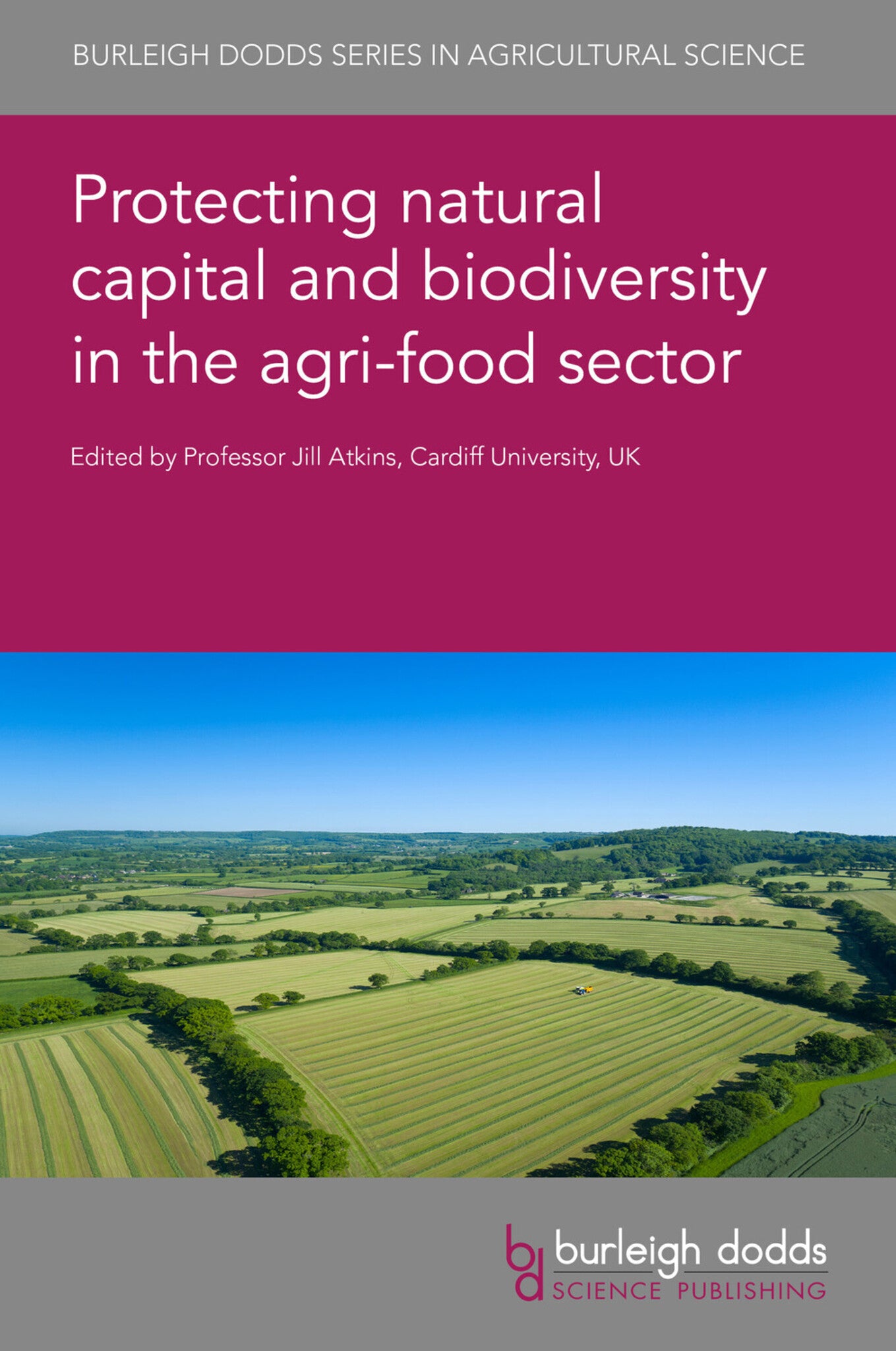We're sorry. An error has occurred
Please cancel or retry.
Protecting natural capital and biodiversity in the agri-food sector

Some error occured while loading the Quick View. Please close the Quick View and try reloading the page.
Couldn't load pickup availability
- Format:
-
30 January 2024

- Provides a detailed overview of how natural capital and biodiversity can be protected in particular sectors, focussing on the dairy industry, palm oil production, winemaking and avocado cultivation
- Considers the impact of agriculture on pollinators and the services they deliver, as well as how insect biodiversity can be conserved in an array of agricultural landscapes
- Includes informative case studies of natural capital and biodiversity accounting in several regions, including Sweden, South Africa and Brazil

NATURE / Environmental Conservation & Protection, Agriculture, agribusiness and food production industries, NATURE / Ecosystems & Habitats / General, SCIENCE / Environmental Science, BUSINESS & ECONOMICS / Industries / Agribusiness, BUSINESS & ECONOMICS / Industries / Food Industry, TECHNOLOGY & ENGINEERING / Agriculture / Sustainable Agriculture, TECHNOLOGY & ENGINEERING / Agriculture / Agronomy / Crop Science, Biodiversity, Conservation of wildlife and habitats, Sustainable agriculture

- 1. Protecting natural capital and biodiversity in agricultural supply chains: introduction: Jill Atkins and John Peirce, Cardiff Business School – Cardiff University, UK;
Part 1 The impact of agriculture on natural capital and biodiversity: international case studies
- 2. Factoring biodiversity into the agri-food sector: international best practices and experiences from South Africa: Yvette Lange and Warren Maroun, University of the Witwatersrand, South Africa;
- 3. Avocado cultivation and biodiversity challenges: Yvette Lange and Warren Maroun, University of the Witwatersrand, South Africa;
- 4. The circular economy and sustainable soybean farming in Brazil: an integrated approach: Wayne van Zijl, University of the Witwatersrand, South Africa;
- 5. Biodiversity considerations in the marine aquaculture and fisheries industries: Dusan Ecim and Warren Maroun, University of the Witwatersrand, South Africa;
- 6. Assessing the impact of pesticides on natural capital and biodiversity: Mira Lieberman, University of Sheffield, UK;
Part 2 Protecting biodiversity and natural capital in agri-food supply chains: the role of accounting and finance
- 7. Advances in corporate natural capital accounting: Joël Houdet, The Biodiversity Footprint Company and University of Pretoria, South Africa;
- 8. Natural capital and biodiversity accounting in the Swedish agri-food sector: Kristina Jonäll, University of Gothenburg, Sweden;
- 9. Biodiversity reporting in the fast-food industry: Dusan Ecim and Warren Maroun, University of the Witwatersrand, South Africa;
- 10. Natural capital and biodiversity accounting in the dairy industry: the case of Valio Group: Hannu Schadewitz, Turku School of Economics at the University of Turku, Finland;
- 11. Natural capital and biodiversity accounting in palm-oil production: Gunnar Rimmel, Aalborg University Business School, Denmark; and Maizatulakma Abdullah, The National University of Malaysia, Malaysia;
- 12. Natural capital accounting and biodiversity in the Italian winemaking industry: Federica Doni, University of Milano-Bicocca, Italy; Antonio Corvino, University of Foggia, Italy; and Silvio Bianchi Martini, University of Pisa, Italy;
- 13. The role of global investors in protecting natural capital and delivering ecosystem services within agriculture, food and other land use value chains: Martina Macpherson, Henley Business School, UK/University of Zurich, Switzerland/Future of Sustainable Data Alliance, UK/All-Party-Parliamentary-Group (APPG) on ESG – Houses of Parliament, UK;
- 14. Exploring corporate weather accounting by the UK food retail industry: Elisabetta A. V. Barone, Northeastern University London and University of Galway, UK; Jill Atkins, Cardiff Business School – Cardiff University, UK; and Warren Maroun, University of the Witwatersrand, South Africa;
Part 3 Protecting pollinators and insect biodiversity in agri-food supply chains
- 15. Using data to assess the impact of agriculture on pollinators and pollinator services: Noa Simón Delso, BeeLife European Beekeeping Coordination, Belgium; and Walter Haefeker, European Professional Beekeepers Association, Germany;
- 16. Developing and implementing plans to conserve insect biodiversity in agricultural landscapes: Scott Longing, Texas Tech University, USA; and Brendan Kelly, Texas Tech University/ Texas A&M AgriLife Research, USA;



